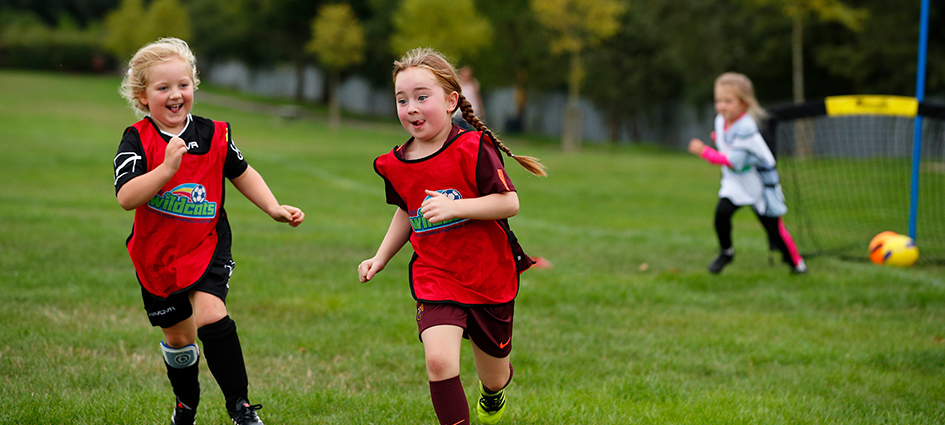
Keeping young players engaged
- The Boot Room
- 20 June 2019
A young child’s first introduction to sport, physical activity, and in our case football, must be an enjoyable one, where they feel invigorated, excited and happy.
Young children engage with sport and physical activity when the following things are present:
- It’s enjoyable and allows them to play with their friends.
- The adults involved are supportive and offer encouragement.
- They’re in an environment where they’re improving and gaining a mastery in their chosen activity.
If coaches begin to overlook these very basic and fundamental needs, there’s a chance that young children will disengage with sport and physical activity.
The balance between mastery and competition is also a critical one for the young player. A mastery environment will begin to meet the needs of the young child, as they will feel competent and confident when engaging in sport in this way. This is not to say that competition isn’t important, it is, but this aspect has to be carefully managed by the adults so that the children benefit from this involvement.
In general there may be two environments that develop due to the attitudes of the adults involved - a mastery environment and a performance-oriented environment.
The mastery environment will:
- focus on individual improvement and learning
- reinforce the notion that effort and cooperation leads to success.
A performance-oriented environment places more emphasis on:
- outcomes and measures (i.e. winning, test scores etc.)
- comparing performance to others.
A mastery environment can bring greater engagement and positive benefits for the children, so it’s important to remember this as training turns into competitive games, into league tables, points and increasing pressure to perform.
For the long-term benefit that lifelong engagement with sport and physical activity can bring, it’s important to provide the most memorable Foundation Phase experience possible.
Alongside this, you can role model how competition can still be enjoyed and help your young players deal with winning or losing, playing well or playing poorly with dignity, respect and sportsmanship.
To learn more about Foundation Phase DNA, click here.


